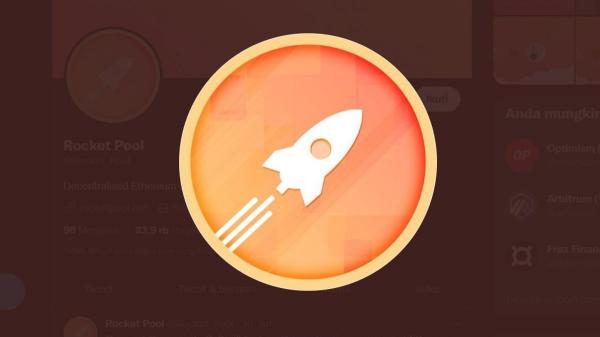
In the blockchain industry, Ethereum, as an important smart contract platform, has attracted much attention in its transition to a Proof of Stake (POS) mechanism. Especially in 2022, Ethereum’s Merge marks a major shift from Proof of Work (POW) to POS. Against this background, RocketPool (RPL), as a decentralized staking protocol, has gradually become the focus of the market. This article will take an in-depth look at RocketPool’s background, advantages, and future development potential.
The origin and development of RocketPool
RocketPool is a decentralized protocol focusing on Ethereum staking. The project was established as early as the end of 2016. As the pioneer of the ETH2 POS protocol, RocketPool has undergone multiple public tests throughout the development process of Ethereum 2.0, demonstrating its team’s deep accumulation in this field. The project was officially launched on November 22, 2021, and is dedicated to promoting the decentralization and security of Ethereum.
As of now, RocketPool's total lock-up value (TVL) has reached 85,984 ETH and more than 3 million RPL, equivalent to approximately US$372 million, showing its strong competitiveness in the market. Although it is second only to Lido in terms of pledge volume, in terms of number of nodes, RocketPool already has 776 nodes, far exceeding Lido's dozen nodes. This data shows that RocketPool has obvious advantages in decentralization.
Staking mechanism and rETH token
As a normal staker, users simply deposit ETH into RocketPool’s deposit pool, allowing node operators to create new beacon chain validators. The minimum amount to stake is 0.01 ETH. Users will receive a token called rETH, which represents the ETH they deposited and the time of deposit. The value of rETH is updated approximately every 24 hours, and the current ETH:rETH ratio is approximately 1:0.98.
It is worth noting that RocketPool’s rETH token still needs further development in terms of liquidity release and integration with second-layer protocols and DeFi protocols. Currently, the number of DeFi protocols integrated by rETH is far less than that of Lido, which is also an area that the project needs to focus on in the future.
Economic Model of RPL Token
RocketPool’s token RPL has a unique economic model. The initial circulation is 18 million coins, and the annual inflation rate is set at 5%. These new RPLs will be allocated to the following three categories of participants:
Node operators (70%): People who use RPL as insurance collateral.
Oracle DAO members (15%): Members who provide various oracle information.
Protocol DAO Treasury (15%): The agency that provides funding for decentralized development.
This design ensures that the value of the RPL token is closely tied to the security and stability of the network. The amount of RPL rewards received by node operators is closely related to the value of their mortgaged insurance RPL, further enhancing the incentive mechanism of participants.
Role of Oracle DAO
The primary responsibility of the Oracle DAO is to ensure that the balances within the staking pool are correct and that the exchange rates for rETH and ETH are accurate. This mechanism ensures the security and transparency of users when staking using RocketPool. Oracle DAO’s members include not only RocketPool’s project developers, but also multiple Ethereum clients, blockchain browsers, and well-known wallet developers.
Market Performance and Future Outlook: The market performance of the RPL token has been relatively stable, although the currency-based ratio of RPL to ETH has barely fallen during the market decline. This shows that market demand for RPL tokens remains strong. As the Ethereum merger proceeds, the RPL token is expected to see a more positive market reaction.
After the merger, the basic income of ETH POS will increase, and the number of RocketPool users and the amount of pledges will also increase. As more DeFi protocols cooperate, the liquidity of rETH will be further released, thereby attracting more users to participate in staking.
Summarize
As a pioneer in the Ethereum POS track, RocketPool has demonstrated strong market potential with its decentralized staking mechanism and unique token economic model. Despite challenges from competitors like Lido, RocketPool still has significant advantages in decentralization and security. As the Ethereum merger advances, RocketPool's influence is expected to continue to expand, and the value of RPL tokens is also expected to usher in new growth.
In this market full of opportunities, RocketPool is undoubtedly a project worth paying attention to. When users choose a staking platform, they should consider RocketPool’s advantages in decentralization, liquidity, and future development potential, and actively participate in this emerging staking ecosystem.